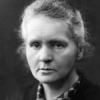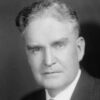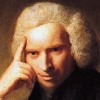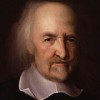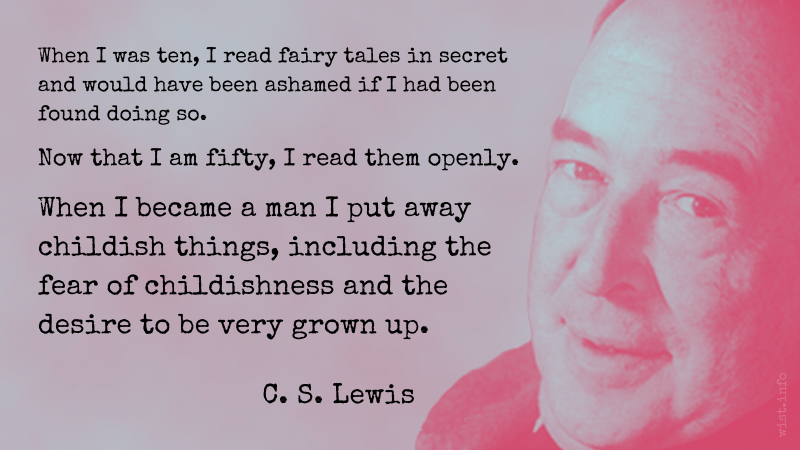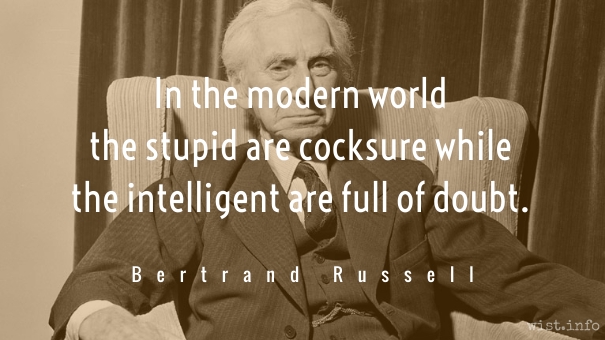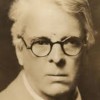What wouldest thou have me follow? what my enemies think prudent, or what I myself think to be so?
[Que veux-tu que je suive, la prudence de mes ennemis, ou la mienne?]
Charles-Lewis de Secondat, Baron de Montesquieu (1689-1755) French political philosopher
Persian Letters [Lettres Persanes], Letter 8, Usbek to Rustan (1721) [tr. Floyd (1762)]
(Source)
(Source (French)). Alternate translations:
What wouldst thou have me pursue; the Prudence of my Enemies, or my own?
[tr. Ozell (1736)]
Which would you have me obey -- the petty maxims that guide my enemies, or the dictates of my own free soul?
[tr. Davidson (1891)]
Which would you have me accept as a guide, -- the foresight of my enemies or my own?
[tr.https://archive.org/details/persianletters00degoog/page/n52/mode/2up?q=%22accept+as+a+guide%22">Betts (1897)]
Would you have me follow my own counsel or that of my enemies?
[tr. Healy (1964)]
Ought I to heed my enemies' prudent counsels or my own?
[tr. Mauldon (2008)]
Which would you have me follow, Rustan, my own counsel, or that of my enemies?
[tr. MacKenzie (2014)]
Quotations about:
self-confidence
Note not all quotations have been tagged, so Search may find additional quotes on this topic.
To lose confidence in one’s body is to lose confidence in oneself.
Simone de Beauvoir (1908-1986) French author, existentialist philosopher, feminist theorist
The Second Sex [Le Deuxième Sexe], Vol. 2, Part 1, ch. 2 (1949) [tr. Borde/Malovany-Chevallier (2009)]
(Source)
It seems that life is not easy for any of us. But what of that? We must have perseverance and above all confidence in ourselves. We must believe that we are gifted for something, and that this thing, at whatever cost, must be attained.
[La vie n’est facile pour aucun de nous. Mais quoi, il faut avoir de la persévérance, et surtout de la confiance en soi. Il faut croire que l’on est doué pour quelque chose, et que, cette chose, il faut l’atteindre coûte que coûte.]
Marie Curie (1867-1934) Polish-French physicist and chemist [b. Maria Salomea Skłodowska]
Letter to her brother Joseph (1894-03-18)
(Source)
(French (Source))
As quoted in Eve Curie Labouisse, Madame Curie: A Biography, ch. 9 (1937) [tr. Sheean (1938)].
Some people laughed to see the alteration in him, but he let them laugh, and little heeded them; for he was wise enough to know that nothing ever happened on this globe, for good, at which some people did not have their fill of laughter in the outset; and knowing that such as these would be blind anyway, he thought it quite as well that they should wrinkle up their eyes in grins, as have the malady in less attractive forms. His own heart laughed: and that was quite enough for him.
Charles Dickens (1812-1870) English writer and social critic
A Christmas Carol, Stave 5 “The End of It” (1843)
(Source)
We long for self-confidence, till we look at the people who have it.
Mignon McLaughlin (1913-1983) American journalist and author
The Neurotic’s Notebook, ch. 4 (1963)
(Source)
The art of war deals with living and with moral forces. Consequently, it cannot attain the absolute, or certainty; it must always leave a margin for uncertainty, in the greatest things as well as in the smallest. With uncertainty in one scale, courage and self-confidence should be thrown into the other to correct the balance. The greater they are, the greater the margin that can be left for accidents.
[Die Kriegskunst hat es mit lebendigen und mit moralischen Kräften zu thun; daraus folgt, dass sie nirgends das Absolute und Gewisse erreichen kann; es bleibt also überall dem Ungefähr ein Spielraum, und zwar eben so gross bei dem Grössten, wie bei dem Keinsten. Wie dieses Ungefähr auf dereinen Seite steht, muss Muth und Selbstvertrauen auf die andere treten und die Lücke ausfüllen. So gross, wie diese sind, so gross darf der Spielraum für jenes werden.]
Karl von Clausewitz (1780-1831) Prussian soldier, historian, military theorist
On War [Vom Kriege], Book 1, ch. 1 “What Is War? [Was ist der Krieg?],” § 22 (1.1.22) (1832) [tr. Howard & Paret (1976)]
(Source)
(Source (German)). Alternate translations:
The art of war has to deal with living and with moral forces; the consequence of which is that it can never attain the absolute and positive. There is therefore everywhere a margin for the accidental; and just as much inthe greatest things as in the smallest. As there is room for this accidental on the one hand, so on the other there must be courage and self-reliance in proportion to the room left. If these qualities are forthcoming in a high degree, the margin left may likewise be great.
[tr. Graham (1873)]
The art of war has to do with living and with moral forces; from this it follows that it can nowhere attain the absolute and certain; there remains always a margin for the accidental just as much with the greatest things as with the smallest. As on the one side stands this accidental element, so on the other courage and self-confidence must step forward and fill up the gap. The greater the courage and self-confidence, the larger the margin that may be left for the accidental.
[tr. Jolles (1943)]
If the mind is to emerge unscathed from this relentless struggle with the unforeseen, two qualities are indispensable: first, an intellect that, even in the darkest hour, retains some glimmerings of the inner light which leads to truth; and second, the courage to follow this faint light wherever it may lead.
[So sind ihm zwei Eigenschaften unentbehrlich: einmal ein Verstand, der auch in dieser gesteigerten Dunkelheit nicht ohne einige Spuren des inneren Lichts ist, die ihn zur Wahrheit führen, und dann Mut, diesem schwachen Lichte zu folgen.]
Karl von Clausewitz (1780-1831) Prussian soldier, historian, military theorist
On War [Vom Kriege], Book 1, ch. 3 “On Military Genius [Der Kriegerische Genius]” (1.3) (1832) [tr. Howard & Paret (1976)]
(Source)
(Source (German)). Alternate translations:
Now, if it is to get safely through this perpetual conflict with the unexpected, two qualities are indispensable: in the first place an understanding which, even in the midst of this intense obscurity, is not without some traces of inner light, which lead to the truth, and then the courage to follow this faint light.
[tr. Graham (1873)]
Now if it is to get safely through this continual conflict with the unexpected, two qualities are indispensable: in the first place, an intellect which even in the midst of this intensified obscurity is not without some traces of inner light which lead to the truth, and next, courage to follow this faint light.
[tr. Jolles (1943)]
But to every man of vision the clear Voice speaks; there is no great leadership where there is not a mystic. Nothing splendid has ever been achieved except by those who dared believe that something inside them was superior to circumstance.
Bruce Barton (1886-1967) American author, advertising executive, politician
The Man and the Book Nobody Knows, ch. 1 “The Executive” (1924)
(Source)
But the problem is that bad writers tend to have the self-confidence, while the good ones tend to have self-doubt.
Charles Bukowski (1920-1994) German-American author, poet
“Charles Bukowski,” interview by Alden Mills, Arete (Jul/Aug 1989)
This is almost always misquoted in a much broader paraphrase, e.g., "The problem with the world is that the intelligent people are full of doubts, while the stupid ones are full of confidence," perhaps to echo Russell and Yeats.
More examination of this quotation: The Best Lack All Conviction While the Worst Are Full of Passionate Intensity – Quote Investigator.
The dread of being duped by other nations — the notion that foreign heads are more able, though at the same time foreign hearts are less honest than our own, has always been one of our prevailing weaknesses.
Jeremy Bentham (1748-1832) English jurist and philosopher
Principles of International Law, Essay 4 “A Plan for Universal and Perpetual Peace” (1796-89)
(Source)
The most that experience seems tew do for us, is tew sho us, what kussid phools every boddy but we, hav made of themselfs.
[The most that experience seems to do for us is to show us what cussed fools everybody but we have made of themselves.]
Josh Billings (1818-1885) American humorist, aphorist [pseud. of Henry Wheeler Shaw]
Everybody’s Friend, Or; Josh Billing’s Encyclopedia and Proverbial Philosophy of Wit and Humor, “Mollassis Kandy” (1874)
(Source)
Bragging is not merely designed to impress. Bragging is designed to produce envy and assert superiority. It is, therefore, an act of hostility. Bragging is also a transparent ploy. It reveals your lack of self-confidence. “I am not enough,” you feel. So you resort to showering me with your “achievements,” in order to mask your perceived deficiencies.
Aaron Hass (contemp.) American clinical psychiatrist, academic, author
Doing the Right Thing: Cultivating Your Moral Intelligence, Sec. 1, ch. 7 “Self-Control” (1998)
(Source)
Loserism is when oppressed people sit around and think up reasons why they can’t do something. Well just do it. Thinking up reasons why you can’t is the Establishment’s job.
Florynce "Flo" Kennedy (1916-2000) American lawyer, feminist, civil rights activist
The Pathology of Oppression (unpub.)
Quoted in "Lawyer Flo Kennedy Enjoys Her Reputation as Radicalism's Rudest Mouth," People (14 Apr 1975).
He took my seat and smiled again, like an affable crocodile. He was probably a very principled man, too. So were they all, all principled men. And women. There were few things more annoying than a visibly principled person. Or more troublesome. Most of the ones I’d met could have used a little uncertainty to dilute their principled-ness.
The brave only know how to forgive; it is the most refined and generous pitch of virtue human nature can arrive at. Cowards have done good and kind actions, cowards have even fought, nay some times, even conquered; but a coward never forgave. It is not in his nature; the power of doing it flows only from a strength and greatness of soul, conscious of its own force and security, and above the little temptations of resenting every fruitless attempt to interrupt its happiness.
Laurence Sterne (1713-1786) Anglo-Irish novelist, Anglican clergyman
Sermon 12, “Joseph’s History Considered”
(Source)
If you can trust yourself when all men doubt you,
But make allowance for their doubting, too ….
Courage is more exhilarating than fear and in the long run it is easier. We do not have to become heroes overnight. Just a step at a time, meeting each thing that comes up, seeing it is not as dreadful as it appeared, discovering we have the strength to stare it down.
For such is the nature of men that howsoever they may acknowledge many others to be more witty, or more eloquent or more learned, yet they will hardly believe there be many so wise as themselves; for they see their own wit at hand, and other men’s at a distance.
Those blush to lose a conquering game,
And fain would peril life for fame:
These bring success their zeal to fan;
They can because they think they can.[Hi proprium decus et partum indignantur honorem
ni teneant, vitamque volunt pro laude pacisci;
hos successus alit: possunt, quia posse videntur.]Virgil (70-19 BC) Roman poet [b. Publius Vergilius Maro; also Vergil]
The Aeneid [Ænē̆is], Book 5, l. 229ff (5.229-231) (29-19 BC) [tr. Conington (1866)]
(Source)
Of the crews of the two remaining ships racing at the funeral games of Anchises: Cloanthus' Scylla which is closing on the finish line; Mnestheus' Pristis which has come up from last place and may yet take the lead. (Cloanthus wins the race by offering a sacrifice to the sea gods.)
(Source (Latin)). Alternate translations:
These their new glory, honours got despise,
Unless they keep it, and to gaine the prize
Would sell their lives; success feeds them; they may
Because they think they can obtain the day.
[tr. Ogilby (1649)]
Resolv'd to hold their own, they mend their pace,
All obstinate to die, or gain the race.
Rais'd with success, the Dolphin swiftly ran;
For they can conquer, who believe they can.
[tr. Dryden (1697)]
These are fired with indignation, lest they should lose their possession of glory and honor they have won; and they are willing to barter life for renown. Those success cherishes; they are able because they seem to be able.
[tr. Davidson/Buckley (1854)]
These scorn to lose the honour that is their own, the glory in their grasp, and would sell life for renown; to these success lends life; power comes with belief in it.
[tr. Mackail (1885)]
These, thinking shame of letting fall their hardly-gotten gain
Of glory's meed, to buy the praise with very life are fain;
Those, fed on good-hap, all things may, because they deem they may
[tr. Morris (1900), l. 228ff]
These scorn to lose their vantage, stung with shame,
And life is wagered willingly for fame.
Success inspires the hindmost; as they dare,
They do; the thought of winning wins the game.
[tr. Taylor (1907), st. 31, l. 274ff]
The leaders now with eager souls would scorn
to lose their glory, and faint-hearted fail
to grasp a prize half-won, but fain would buy
honor with life itself; the followers too
are flushed with proud success, and feel them strong
because their strength is proven.
[tr. Williams (1910)]
These think it shame not to keep the honour that is theirs, the glory they have won, and would barter life for fame: those success heartens; strong are they, for strong they deem themselves.
[tr. Fairclough (1916)]
On the Scylla
They would give their lives to hold their place, they have won it,
The glory and honor are theirs already, almost;
And Mnestheus’ men take courage from their nearness;
They can because they think they can.
[tr. Humphries (1951)]
One crew was compelled by the shame of losing a prize they had all but
Gained for their own, and would give their lives for its glory; the other
Was fired by success -- they could do it because they believed they could do it.
[tr. Day-Lewis (1952)]
Cloanthus' crewmen
now think it a disgrace to fail to keep
the fame and honor they themselves have won,
and they would give their very lives for glory;
but Menestheus' men are strengthened by success,
they have the power because they feel they have it.
[tr. Mandelbaum (1971), l. 301ff]
One crew fought off the shame of losing honor
Theirs already, glory won; they'd give
Their lives for fame; but luck empowered the others
Who felt that they could do it, and so could.
[tr. Fitzgerald (1981), l. 294ff]
Cloanthus and his men on the Scylla saw the honour as theirs by right. They had already won the victory and had no intention of giving it up. They would rather have lost their lives than lose the glory. Mnestheus and his men on the Pristis were feeding on success. They could win because they thought they could.
[tr. West (1990)]
The former crew are unhappy lest they fail to keep
the honour that is theirs and the glory already
in their possession, and would sell their lives for fame.
the latter feed on success: they can because they think they can.
[tr. Kline (2002)]
One crew, stung by the shame of losing victory now
with glory won, would trade their lives for fame.
But Mnestheus and his crew, fired by their success,
can just about win the day because they think they can.
[tr. Fagles (2006), l. 256ff]
One crew would hate to lose the glory of an honor all but one. They'd trade their lives for victory. The others were encouraged by success. Belief in victory spurred them on.
[tr. Bartsch (2021)]
When I was ten, I read fairy tales in secret and would have been ashamed if I had been found doing so. Now that I am fifty, I read them openly. When I became a man I put away childish things, including the fear of childishness and the desire to be very grown up.
C. S. Lewis (1898-1963) English writer, literary scholar, lay theologian [Clive Staples Lewis]
“On Three Ways of Writing for Children,” lecture, Library Association Bournemouth Conference (29 Apr – 2 May 1952)
(Source)
Reprinted in On Stories (1966). Referencing 1 Corinthians 13:11.
Brute force plays a much larger part in the government of the world than it did before 1914, and what is especially alarming, force tends increasingly to fall into the hands of those who are enemies of civilization. The danger is profound and terrible; it cannot be waved aside with easy optimism. The fundamental cause of the trouble is that in the modern world the stupid are cocksure while the intelligent are full of doubt.
Bertrand Russell (1872-1970) English mathematician and philosopher
“The Triumph of Stupidity,” New York American (1933-05-10)
(Source)
Often paraphrased, "The trouble with the world is that the stupid are cocksure, and the intelligent are full of doubt." See also Yeats and Bukowski.
More examination of this quotation: The Best Lack All Conviction While the Worst Are Full of Passionate Intensity – Quote Investigator.
Turning and turning in the widening gyre
The falcon cannot hear the falconer;
Things fall apart; the centre cannot hold;
Mere anarchy is loosed upon the world,
The blood-dimmed tide is loosed, and everywhere
The ceremony of innocence is drowned;
The best lack all conviction, while the worst
Are full of passionate intensity.William Butler Yeats (1865-1939) Irish poet and dramatist
“The Second Coming,” ll.1-8 (1920)
(Source)
More examination of this quotation: The Best Lack All Conviction While the Worst Are Full of Passionate Intensity – Quote Investigator. See also Russell and Bukowski.




